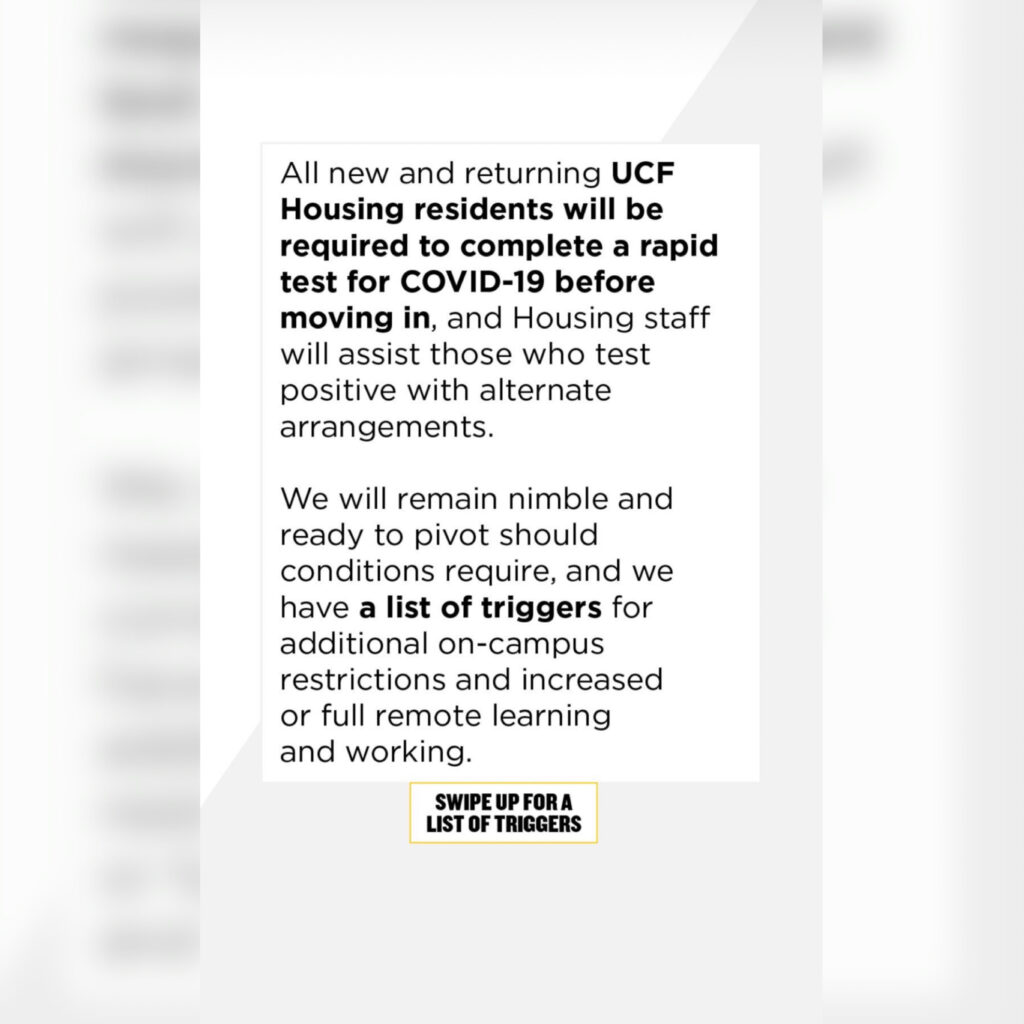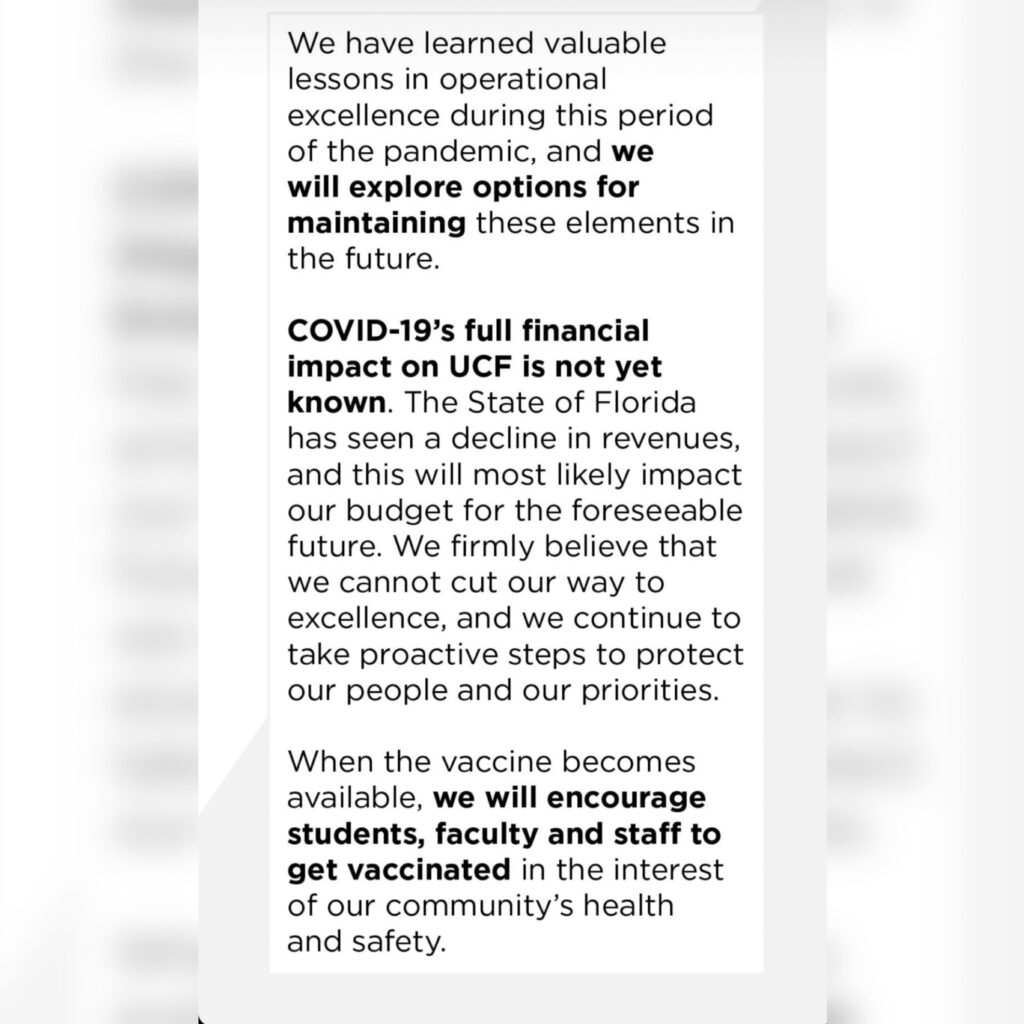UCF has developed a list of triggers that could lead to additional on-campus restrictions if certain criteria are met.
UCF said a combination of campus and community criteria may lead to further campus restrictions, the need to increase remote learning and working, or a full return to remote learning and working.
The UCF COVID-19 Clinical Oversight Committee and the Emerging Issues and Crisis Response Team has developed a list of triggers that consider COVID-19 impacts on campus and in the surrounding community, the statement reads.
“These triggers will be used to advise on when to make changes to campus operations and are informed by evidence-based science and expert opinions,” UCF said.

“All new and returning UCF Housing residents will be required to complete a rapid test for COVID-19 before moving in, and Housing staff will assist those who test positive with alternate arrangements,” UCF said in its Instagram story on Wednesday.
The university said it is ready to pivot should conditions require, and depending on the circumstances, changes in campus operations may be temporary or long-term.
Here is the list of triggers UCF has prepared for additional on-campus restrictions:
CAMPUS TRIGGERS
- COVID-19 related death(s) of students, staff, or faculty.
- Sustained increases above 10% threshold in percent positive testing.
- The sustained upward trajectory of documented cases or percentage of positive tests — with flat or increasing volume of tests — for 14 days.
- The sustained upward trajectory of flu-like illness and COVID-19 syndromic surveillance within a 14-day period over baseline rates.
- Rapid sustained increase in cases of community transmission with no known source in the student population.
- On-campus clusters overwhelm our ability to quarantine/isolate and contact trace.
- The number, location and type of cluster.
- Personal protective equipment shortages impacting the ability to test and care for COVID-19 patients.
- Inability to adequately test due to vendor or supply chain problems
- Employee absenteeism impacting critical operations necessary to maintain current health measures, including sanitation and disinfection efforts.
- Degradation of containment capabilities.
COMMUNITY TRIGGERS
- Significant, applicable action by the governor or other public official.
- Escalation of Orange County Mayor’s Office’s COVID-19 risk-based guidelines.
- Significant, sustained increase in Orange and Seminole County hospital admissions.
- Insufficient ICU beds and respirators in the region.
- Trends among sister institutions in the Florida State University System.
- The sustained upward trajectory of flu-like illness — when compared to traditional rates — and COVID-19-like syndromic surveillance within a 14-day period.
- The sustained upward trajectory of documented cases or percentage of positive tests — with a flat or increasing volume of tests — for 14 days.
- Degradation of robust testing capacity in the community, including screening and contact tracing for symptomatic individuals.
The university said in a statement that possible responses to a surge in COVID-19 cases on campus or in the community may include the following:
- Movement of an in-person class or classes to remote, temporarily or long-term.
- Closure of a residence hall, temporarily or long-term.
- Closure of a building or facility, temporarily or long-term.
- Further restriction of activities on campus.
- Full return to remote learning and working.

Earlier this week, UCF said its campus may serve as a mass COVID-19 vaccination site in the spring — the university said it will encourage students, faculty and staff, to get vaccinated in the interest of UCF’s health and safety.
This is a developing story.
Check back with Knight News for updates.




